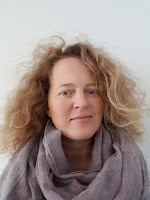Hello everyone,
Last week, a long-term staff member retired. Kirsty Carrick has been
with us for over 20 years and is a highly respected and much valued member of
our team. This got me thinking about how one of the very many strengths of our
school is about commitment and longevity in the job. Whether we like it or not,
we are an important part of each other’s lives. Many of you remember when our
colleague’s got married, when their children were born, and when they were
going through ups and downs in their lives. This is the difference between a
community and a place of work, it is about loyalty and connection, and it
reflects how welcomed I felt from everyone here at the UoN from my very first
day. The people we work with are not just our colleagues, but they are people
that we share our lives with.
Speaking about longevity, I met with Daphne Keats yesterday. A
strong woman who has been a cornerstone of our school. At 92 she just returned
from another trip to China where she celebrated the anniversary of the China-Australia
Centre for Cross-cultural research, that she started many years ago. I think
this centre is a powerful legacy and I have been thinking about how we could
maintain it, working with Stefi and the Keats fund. It would be great to
continue the momentum that she and John started so many years ago. We could
perhaps start with taking some of our students over to run some small
cross-cultural projects as part of their undergraduate program? Offer some
teaching exchanges?
Last night I also went to the inaugural lecture celebrating the 40th
anniversary of medicine at the UoN. Sitting there waiting for the lecture to
start, I was watching the rolling video of historical pictures of the medical
school form the 70’s through the 80’s and so on to today. In the audience were
past deans, VC’s, students and academics. Professor Brian Kelly - the current
Head of Medicine and Public Health, describes how he was one of those early
medical students. Once again I was struck by this notion of working within an
institution that allows us to grow as academics, and encourages commitment and
loyalty. Once again, I feel very lucky to be here J
Good luck Kirsty, you will be missed.
Kristen




